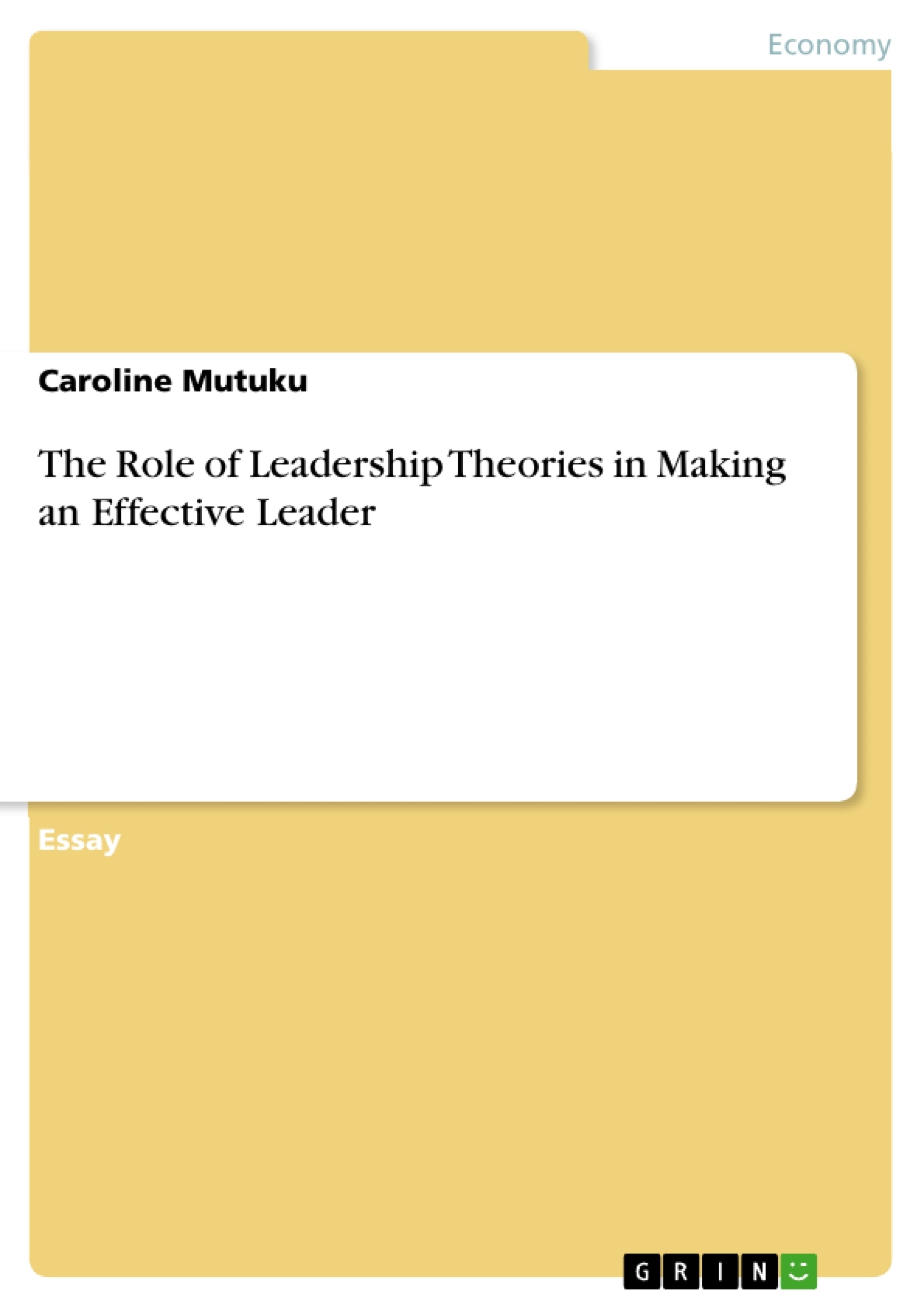Over the years, political scientists, management scholars and experts, philosophers, psychologists and even sociologist have tried to pin down the leadership essence and proceeded to develop new styles and theories with the aim of meeting the needs of organizations. It is believed that the development of these new insights will make a difference between a successful and unsuccessful leader. However, leadership remains to be a complicated concept because of the assumption that some individuals have inherent attributes, qualities and traits making them better situated to leadership. Thus, leadership may be termed as a natural quality that is possessed by few people whereby natural leaders may use it more effectively by applying the different leadership theories in diverse circumstances. On the other hand, individuals who do not possess leadership naturally can also become effective leaders through diligent training. Although there are several theories of leadership, which may contain slight differences, it is noted that they play significant roles in effective leadership as explored in this essay.
Inhaltsverzeichnis (Table of Contents)
- The Role of Leadership Theories in Making an Effective Leader
- Trait Theory and Leadership
- Great Man Theory
- Contingency Theory
- Conclusion
Zielsetzung und Themenschwerpunkte (Objectives and Key Themes)
This essay explores the various theories of leadership and their role in developing effective leaders. It aims to examine how different leadership models contribute to achieving organizational goals and fostering successful teamwork.
- The evolution of leadership theories over time
- The impact of individual traits on leadership effectiveness
- The role of situational factors in determining leadership style
- The importance of balancing task-oriented and relationship-oriented approaches
- The shift towards more enabling and participative leadership styles
Zusammenfassung der Kapitel (Chapter Summaries)
- This chapter introduces the concept of leadership and its evolution, highlighting the various theories developed over the years. It explores the early focus on individual traits and the limitations of this approach.
- This chapter discusses the "Great Man Theory" and its emphasis on identifying and developing leadership qualities. It examines the theory's strengths and weaknesses, highlighting its limitations in contemporary leadership contexts.
- This chapter introduces the Contingency Theory, which emphasizes the importance of situational factors in determining effective leadership. It explores the different contingencies that influence leadership style and effectiveness.
Schlüsselwörter (Keywords)
Leadership theories, trait theory, great man theory, contingency theory, task-oriented leadership, relationship-oriented leadership, situational factors, organizational contingencies, leadership effectiveness, effective leadership.
Frequently Asked Questions
What is the main difference between natural leaders and trained leaders?
Natural leaders possess inherent attributes and traits that make them effective, while individuals without these qualities can become effective leaders through diligent training and the application of leadership theories.
What is the "Great Man Theory"?
The Great Man Theory suggests that leadership qualities are inherent and that great leaders are born, not made. It focuses on identifying and developing these specific individual traits.
How does Contingency Theory define leadership effectiveness?
Contingency Theory emphasizes that leadership effectiveness depends on the match between a leader's style and the specific situational factors or organizational contingencies.
Why is leadership considered a complicated concept?
It is complicated because of the assumption that some people have inherent qualities for leadership, while others believe it can be learned through diverse theories and circumstances.
What are task-oriented and relationship-oriented leadership approaches?
Task-oriented leadership focuses on achieving goals and completing work, while relationship-oriented leadership focuses on the well-being and motivation of team members.
- Arbeit zitieren
- Caroline Mutuku (Autor:in), 2018, The Role of Leadership Theories in Making an Effective Leader, München, GRIN Verlag, https://www.grin.com/document/429855



